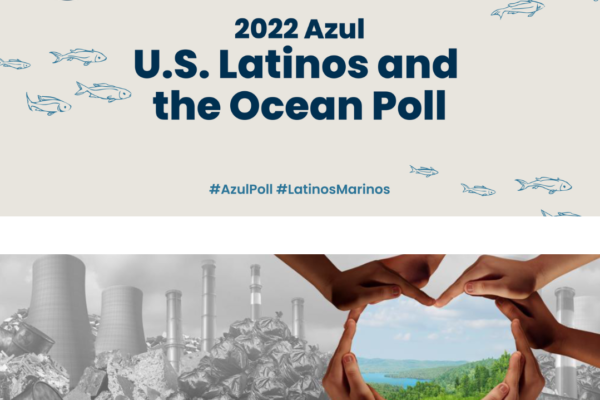April 10th, 2010 the Deepwater Horizon drilling unit exploded in the Gulf of Mexico—it took the lives of 11 workers that day, and the 4.9 million barrels of crude oil that would eventually seep into the ocean continues to affect millions of lives today.
The Ocean Project’s quarterly tracking data showed a spike in interest in ocean health in June 2010. In that quarter, the public not only had a heightened desire to protect the ocean, but felt that it should be a priority for the government. By the time the 3rd quarter tracking data returned, interest was already declining. Seeour April 2011 blog for more.

By August 2010, newscoverage of the oil spill had dropped to nearly nothing. Despite this oil spill being the second worst in American history, the lifecycle of the story was a scant few months.
There is mounting evidence that the damage done by this oil spill is much more serious and long-lasting than the media coverage would lead one to believe. From ZeroHedge.com:
The Ocean Project’s quarterly tracking data showed a spike in interest in ocean health in June 2010. In that quarter, the public not only had a heightened desire to protect the ocean, but felt that it should be a priority for the government. By the time the 3rd quarter tracking data returned, interest was already declining. Seeour April 2011 blog for more.

By August 2010, newscoverage of the oil spill had dropped to nearly nothing. Despite this oil spill being the second worst in American history, the lifecycle of the story was a scant few months.
There is mounting evidence that the damage done by this oil spill is much more serious and long-lasting than the media coverage would lead one to believe. From ZeroHedge.com:
- “New York Times: “GulfDolphins Exposed to Oil Are Seriously Ill, Agency Says
- MSNBC: Gulf shrimp scarce thisseason (and see the Herald Tribune‘s report)
- Mother Jones: Eyeless shrimp are being found all over the Gulf
- NYT: Oil SpillAffected Gulf Fish’s Cell Function, Study Finds
- CBS:Expert:BP spill likely cause of sick Gulf fish (and see the Press Register’s report)
- “Study confirms oil from Deepwater spill entered food chain
- Pensacola News Journal: “Sick fish” archive
- Agence France Presse: Mysteryillnesses plague Louisiana oil spill crews
- MSNBC: Seaturtle deaths up along Gulf, joining dolphin trend
- MSNBC:Exclusive: SubmarineDive Finds Oil, Dead Sea Life at Bottom of Gulf of Mexico
- AP: BP oil spill the culprit for slow death of deep-sea coral, scientists say (and see the Guardian and AFP‘s write ups)
- A recent report also notes that there are flesh-eating bacteria in tar balls of BP oil washing up on Gulf beaches
- Corexit dispersant inhibits the ability of microbes to break down oil, and allows oil and other chemicals to be speed past the normal barriers of human skin. Background here. NYT: Impact of Gulf Spill’s Underwater Dispersants Is Examined More on these dispersants: “The report finds that “Of the 57 ingredients: 5 chemicals are associated with cancer; 33 are associated with skin irritation from rashes to burns; 33 are linked to eye irritation; 11 are or are suspected of being potential respiratory toxins or irritants; 10 are suspected kidney toxins; 8 are suspected or known to be toxic to aquatic organisms; and 5 are suspected to have a moderate acute toxicity to fish.”
Check out this video from a recent story by Al Jazeera:
The tendencies of the news media to drop stories quickly, interactions between federal agencies and lawsuits, and the ability of companies like BP to drive the discourse complicate our efforts to communicate about the long term effects of disasters like the Gulf oil spill. It’s important to keep these issues top-of-mind and not abandon people and ecosystems devastated by these events once the news story is no longer in vogue.
To take action, you can visit sites like the Gulf Restoration Network and check out our action page.



